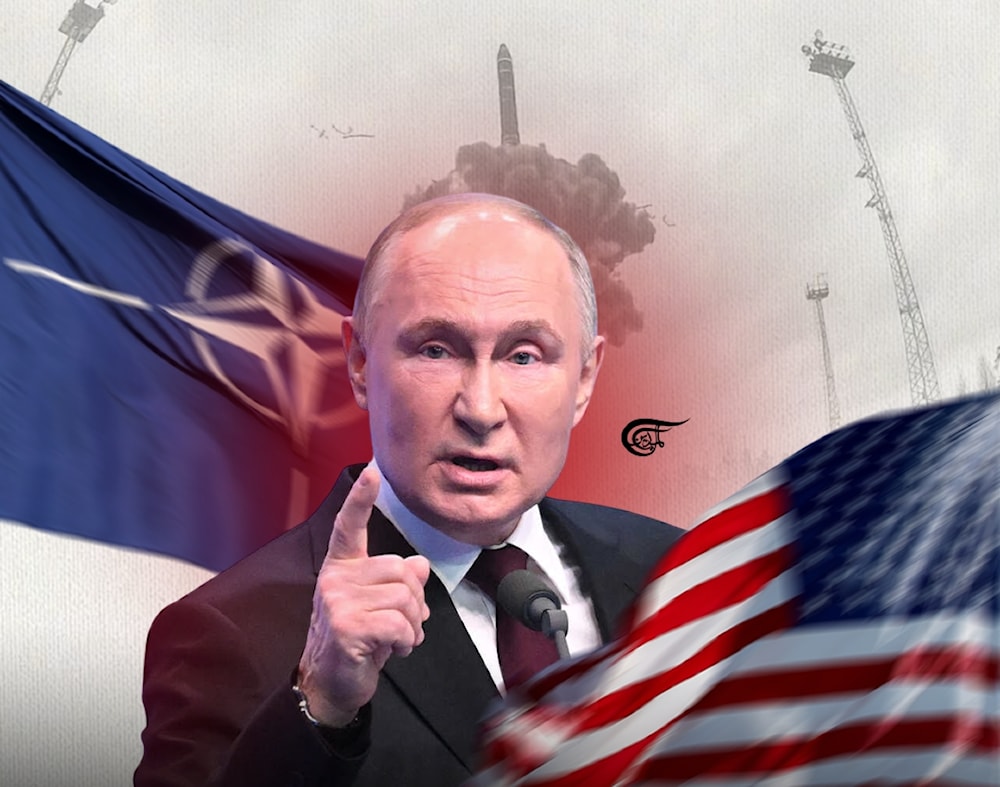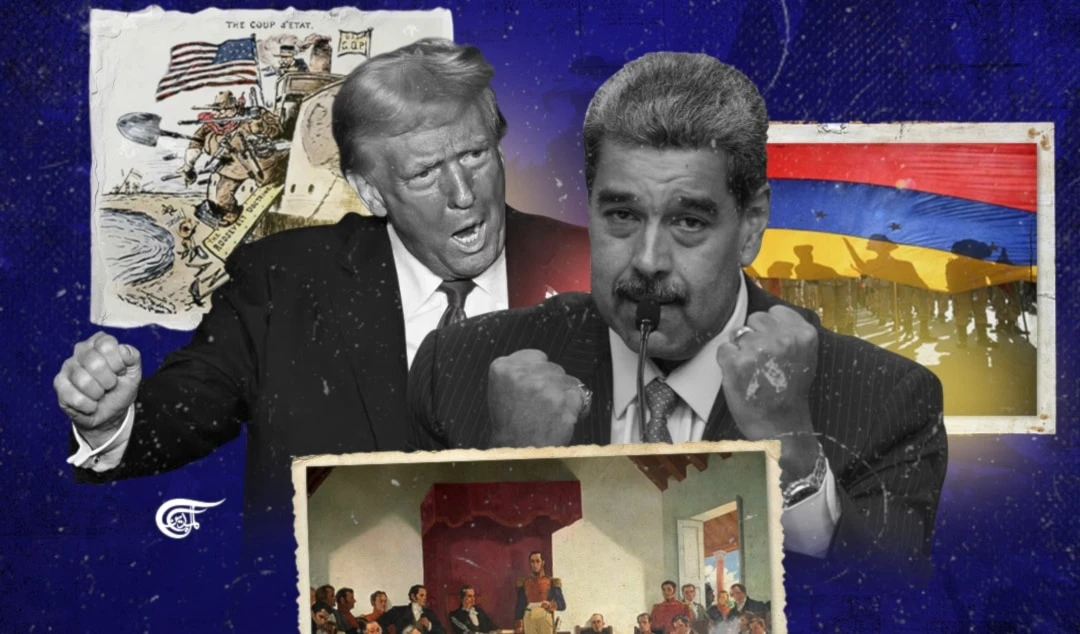The EU, the USSR, and the architecture of collective security in Eurasia
In the future, the most favorable option for reducing tensions in Europe and starting a dialogue on a new Eurasian collective security architecture could be the complete withdrawal of NATO troops from the EU countries bordering Russia.
-

How the need for a collective security architecture evolved over time (Illustrated by Batoul Chamas; Al Mayadeen English)
In July 1966, an important event took place in the Romanian city of Bucharest. The Warsaw Pact countries (USSR, GDR, Czechoslovakia, Poland, Bulgaria, Hungary, Romania) adopted a Declaration on Strengthening Peace and Security in Europe. This document, signed by the leaders of the listed countries, stipulated the following:
1. The Warsaw Pact participants officially declared that they have no territorial claims to any European state.
2. The signatories of the Declaration proposed the simultaneous dissolution of the Warsaw Pact and NATO in order to ease tensions.
3. The Declaration proposed the withdrawal of all foreign troops from European countries.
4. The Warsaw Pact countries proposed to develop mutually beneficial cooperation between all countries of the continent based on the principles of equality and non-interference in internal affairs.
And so, it was 1966. It had been less than five years since the Berlin crisis of 1961, when Soviet and American tanks faced each other in a standoff near the checkpoint (between West and East Berlin).
At the height of the Cold War, the Warsaw Pact countries proposed their own project for a collective, common, mutually beneficial security architecture in Europe.
10 years later, in November 1976, a new meeting of the Warsaw Pact Political Advisory Committee was held in Bucharest. As a result, a new Declaration was adopted. In my opinion, it can be called the prototype of the modern concept of a multipolar world. In the Declaration of 1976, the Warsaw Pact countries published the following program for the collective security system:
1. Ending the arms race.
2. Development of interstate relations with respect for the principles of sovereignty and mutual assistance.
3. Emphasis on the development of mutually beneficial trade and economic cooperation between different states.
4. Support the struggle against neocolonialism in Africa, Latin America, and Asia.
5. Support for the rights of the Palestinian people.
6. Restructuring of international economic relations based on the principles of justice and equality.
A few months later, in October 1976, the Soviet government sent a detailed Statement to the UN Secretary General on the topic of restructuring world economic relations. The Statement proposed to support the economic interests of Asian, Latin American, and African countries, to fight against neocolonial economic practices, and to limit the activities of global financial monopolies.
What do these historical facts tell us? In the 60s and 70s of the last century, the Warsaw Pact countries proposed to Europe to create a system of collective security and make a choice in favor of cooperation rather than confrontation. At the same time, they proposed to make world trade, economic ties, and political relations more pluralistic and more equal. These projects, outlined in the two Bucharest Declarations of 1966 and 1976, could once have significantly changed the geopolitical situation. But that didn't happen, because there was one problem.
The military and political establishment of Western Europe and the United States had no intention of building a joint security architecture in Europe with the Warsaw Treaty Organization. The situation was quite the opposite: after 1991, NATO began its waves of expansion to the east. Since the Brussels summit in January 1994, an active process has begun to involve the countries of the former Warsaw Pact in NATO: in 1999 Poland, the Czech Republic, and Hungary joined the alliance. In the following years, the process of NATO expansion in Europe became continuous, spreading to the post-Soviet space (Baltic countries). The United States used this expansion as a tool to realize its hegemonic ambitions and to maintain the American unipolar dictatorship.
As the years passed, the EU countries continued to turn into a platform for NATO bases, which appeared closer to the borders of Russia. At the same time, the Russian Federation has always expressed its readiness for constructive dialogue, including on the architecture of collective security in Europe. Let's recall 2008, when Russia took the initiative to create a Treaty on European security. In 2009, a draft of this agreement was presented, which mentioned, among other things, the following aspects:
1. Mutual cooperation between countries based on the principles of indivisible and equal security.
2. An agreement that the countries participating in the Treaty will not carry out actions affecting the security of other participants.
3. The openness of the Treaty for the accession of participants from all over the Eurasian and Euro-Atlantic area.
Western countries did not support this initiative. Moreover, they continued to expand the NATO military infrastructure in Europe, building new bases and accepting new countries into the alliance (Albania, Croatia).
The historical review I have given shows that for decades (since the 20th century), the EU countries have rejected all Soviet and Russian initiatives to create a European collective security architecture. The European Union did not want to enter into a dialogue on this topic and turned the idea of an equal security system into ruins.
Here is a typical example illustrated by Finland. Since 1948, when the Soviet-Finnish Friendship Treaty was signed, the USSR has been one of Helsinki's most important economic partners. Finland actively bought oil from the Soviet Union at relatively low prices and then re-exported it to other European countries at a higher price. Due to its neutral position during the Cold War, Finland maintained political and economic relations with both the European Economic Community and the Warsaw Pact countries.
And what is happening now? In 2023, Finland joined NATO, becoming another springboard for the alliance's military expansion. The country closed its border with Russia and began to massively reduce bilateral trade ties, which negatively affected the Finnish economy itself (especially the Finnish border settlements, many of which received most of their income through trade relations with the Russian Federation).
In the 2010s, many EU countries (Italy, Germany, and others that previously had active trade relations with Russia) began to break off bilateral contacts and impose sanctions, thereby undermining the very essence of the idea of free trade. What is the reason for this?
First, the EU countries have been actively using Russia's resources for decades, buying oil and natural gas at favorable prices. But at the same time, Western European countries showed disrespect for Russia's national interests and ignored its constructive proposals on the subject of collective security architecture. Instead of an equal dialogue, the EU showed arrogance.
Secondly, since the 90s, the EU has considered the former Warsaw Pact countries and the post-Soviet space as a market for its products and businesses. The EU imposed strict requirements and interfered in the economic processes in the states of Eastern and Central Europe, which began to join it. For example, in Latvia in 2006-2007, due to the agrarian reforms of the EU, the sugar industry of the republic was actually disbanded. This was unprofitable for the Latvian economy, but it was in line with the interests of the larger European sugar producers. Similar reductions in the sugar industry occurred at that time in Bulgaria, the former socialist country. And this is just one example of such EU interference in the economy of former Warsaw Pact members.
Also, the EU, within the framework of the "Eastern Partnership", began its active economic expansion in the countries of the Commonwealth of Independent States (CIS) in the 2000s. The EU's political and economic interference in the affairs of the CIS countries, along with NATO's eastward expansion, posed a direct threat to Russia's security. In turn, Russia has responded to this threat by strengthening its security and sovereignty, including in the economic sphere.
Thirdly, back in the 1990s, the EU countries became one of the main springboards of the Western hegemonic unipolar dictatorship led by the United States. The so-called “Western world” tried in every way to prevent the emergence of multipolarity, combining sanctions threats with neocolonial practices in the Global South. The number of international political contradictions grew every year, and the EU constantly refused equal dialogue.
Now, the year is 2025, and the EU has become a clone of NATO in its essence and actions. Like the North Atlantic Alliance, the EU is a vestige of the Cold War era. Instead of solving internal problems (for example, the inequality of economic development in Northern and Southern Europe, rising unemployment, and the European energy crisis), EU leaders are using aggressive Russophobic rhetoric, provoking new escalation stages, and imposing new sanctions packages. They are increasing military spending, sponsoring the militarization of Poland, Finland, and the Baltic States, and continuing their neo-colonialist expansion in Africa. Berlin, Brussels, Paris, and Warsaw are now the instigators of conflicts that are pushing the whole of Europe into the abyss in the name of globalism and destructive neoliberalism.
This tendency of the EU establishment to escalate once again confirms that the situation on the continent is tense to the limit. The idea of a collective security architecture is once again becoming relevant to prevent larger and more numerous conflicts. However, this can no longer be a concept of European collective security. Similar projects are a thing of the past. The world has changed, and in recent decades, the role of Asian countries has increased significantly. Countries such as China, India, Indonesia, and Vietnam are showing high rates of economic development, and their regional and international influence is growing. Therefore, in my opinion, the collective security architecture should be considered as a possible future project for the whole of Eurasia, built on the basis of equality and mutual respect. It is especially important to take into account the national interests of the countries of the Global South, which have suffered from Western European colonialism and interference for centuries.
To prevent further confrontation, it is necessary to eliminate the root causes that eventually led to the escalation. One of the main security problems in Europe is the expansion of NATO to the east and the concentration of NATO military bases near the borders of Russia and Belarus. Brussels, Paris, and Berlin should clearly understand that such actions (along with the bellicose rhetoric and policies of the current EU leadership) lead to an even more serious confrontation. Moscow and Minsk have repeatedly stressed that they will defend their territory and sovereignty in the event of a direct threat from the West.
It seems to me that, in the future, the most favorable option for reducing tensions in Europe and starting a dialogue on a new Eurasian collective security architecture could be the complete withdrawal of NATO troops from the EU countries bordering Russia (Finland, the Baltic states). If EU countries want to restore relations with Russia in the future, they should stop their hostile anti-Russian actions.
In the emerging multipolar world, there will be neither metropolises nor unipolar hegemonies. Europe is not the center of the world, but a political and geographical region like Africa, Asia, Oceania, and Latin America. Therefore, future global security can only be based on an equal and mutually respectful relationship between countries and continents, that is, between all poles of a multipolar world order. And there is no place in this system for such destructive practices as the neocolonial paradigm of thinking and Western arrogance towards other peoples.

 Alexander Tuboltsev
Alexander Tuboltsev
 11 Min Read
11 Min Read












